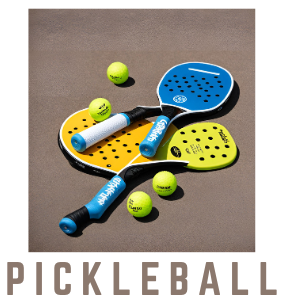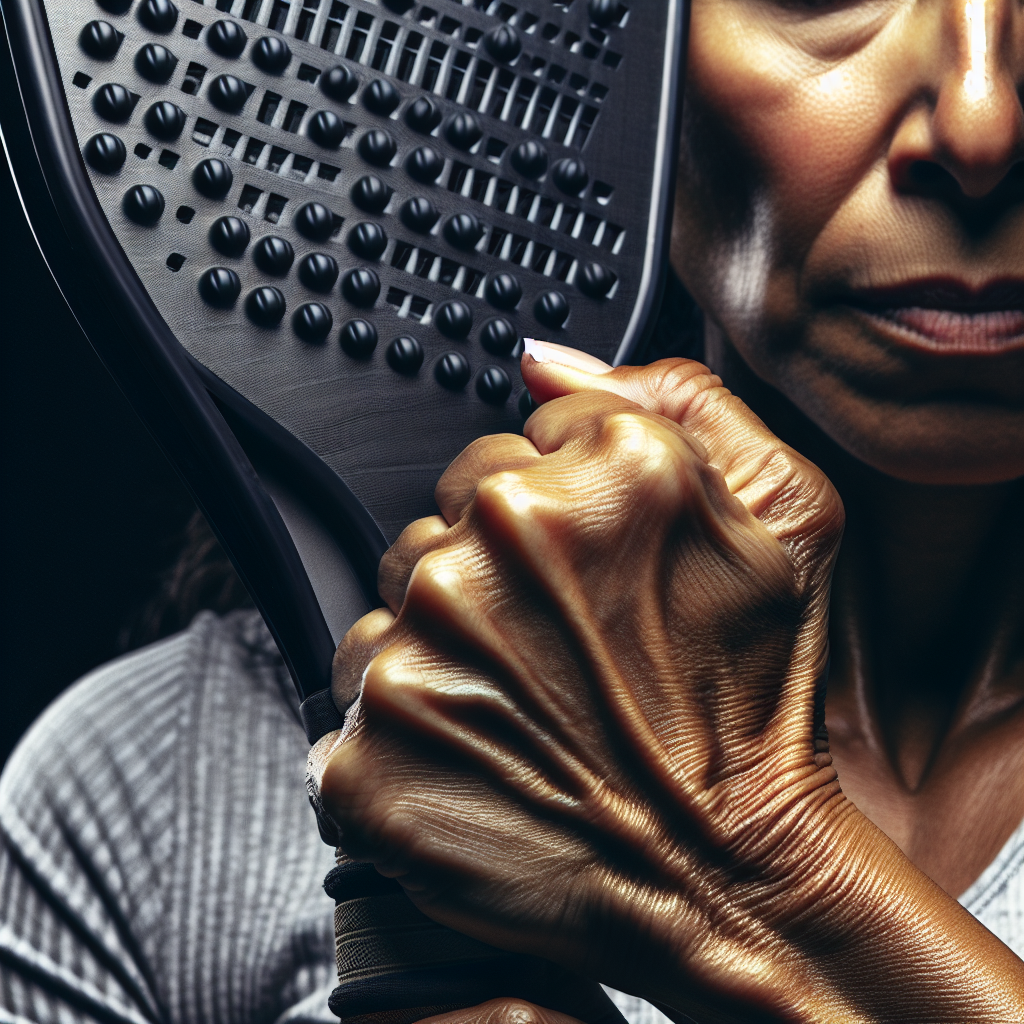Are you finding it difficult to overcome the mental challenges you face while playing pickleball? Don’t worry, you’re not alone. It’s common for players to struggle with the mental aspect of the game, whether it’s dealing with pressure, self-doubt, or maintaining focus. In this article, we will explore some effective strategies to help you conquer these mental challenges in pickleball, allowing you to improve your performance and enjoy the game to its fullest. So, if you’re ready to dive into the world of mental resilience and take your pickleball skills to the next level, read on.
Understanding the Mental Challenges in Pickleball
Recognizing the Importance of Mental Strength in Pickleball
In the fast-paced and competitive sport of pickleball, mental strength plays a crucial role in achieving success on the court. While physical abilities and technical skills are essential, it is the mental fortitude that often determines the outcome of a match. Developing mental strength can significantly enhance your performance, improve your decision-making abilities, and help you overcome the challenges that arise during gameplay.
Identifying Common Mental Challenges in Pickleball
Pickleball can present several mental challenges that players often face. Some of the most common challenges include anxiety, nervousness, lack of focus or concentration, pressure to perform, burnout, emotional instability, and struggles with motivation. By acknowledging and understanding these challenges, you can begin to address them effectively and develop strategies to overcome them.
Understanding the Impact of Mental Challenges on Performance
Mental challenges can have a profound impact on your overall performance in pickleball. Your ability to focus, make quick decisions, maintain composure under pressure, and manage emotions directly affects your game. When mental challenges go unaddressed, they can lead to decreased performance, increased errors, and reduced enjoyment of the sport. Therefore, it is crucial to develop strategies to overcome these challenges and maintain mental resilience.
Developing Mental Resilience
Recognizing that Mental Challenges are Normal and Temporary
The first step in developing mental resilience is understanding that mental challenges are a normal part of the game and that they are temporary. Everyone, regardless of skill level, experiences moments of doubt, anxiety, and nervousness. By accepting these challenges as a natural part of the sport, you can approach them with a positive mindset and be better prepared to overcome them.
Building a Strong Mindset through Positive Self-Talk
Positive self-talk is a powerful tool for building mental resilience. By consciously shifting your self-talk from negative to positive, you can cultivate a strong and confident mindset. Instead of focusing on your weaknesses or past mistakes, focus on your strengths and the progress you have made. Encourage yourself with uplifting and motivating self-talk, reminding yourself of your abilities and potential.
Using Visualization Techniques to Enhance Mental Resilience
Visualization techniques involve creating mental images of successful performances and positive outcomes. By vividly imagining yourself executing precise shots, making strategic decisions, and winning points, you can strengthen your mental resilience. Regularly practicing visualization exercises not only enhances your belief in your abilities but also helps you develop a calm and focused mindset.
Improving Focus and Concentration
Understanding the Role of Focus in Pickleball
Maintaining focus is crucial in pickleball as it enables you to pay attention to the ball, your opponents’ movements, and anticipate plays. By being fully present in the moment and minimizing distractions, you can make better decisions and execute shots more effectively. Improving focus requires practice and the adoption of specific techniques to enhance concentration.
Practicing Mindfulness to Enhance Focus
Mindfulness is the practice of being fully present and aware of your thoughts, feelings, and sensations without judgment. By incorporating mindfulness techniques into your pickleball routine, such as deep breathing exercises, body scans, and sensory awareness, you can improve your ability to stay focused and prevent your mind from wandering.
Implementing Pre-Game and In-Game Routines to Maintain Concentration
Establishing pre-game and in-game routines can help you maintain concentration and focus throughout a match. A pre-game routine might include physical warm-ups, visualization, and positive affirmations. In-game routines could involve taking a deep breath before each serve or discussing strategies with your partner during timeouts. These routines create a sense of familiarity, reduce anxiety, and keep your mind engaged in the game.
Managing Anxiety and Nervousness
Identifying the Sources of Anxiety in Pickleball
Anxiety is a common mental challenge in pickleball, especially in competitive settings. It can arise from fear of failure, high expectations, pressure from teammates or spectators, or intense competition. By identifying the sources of anxiety, you can begin to address them and develop strategies to manage your nervousness effectively.
Utilizing Relaxation Techniques to Reduce Anxiety
Relaxation techniques such as deep breathing, progressive muscle relaxation, and guided imagery can help reduce anxiety levels before and during pickleball matches. These techniques promote relaxation and calmness, allowing you to focus on the game and perform at your best. Regular practice of these techniques can also enhance your overall stress management skills.
Developing Pre-Competition Rituals to Calm Nerves
Pre-competition rituals can be personalized routines designed to calm nerves and create a sense of control. They can include activities like listening to calming music, engaging in light stretching, or engaging in positive self-talk. By incorporating these rituals into your pre-match routine, you can reduce anxiety and establish a state of readiness for optimal performance.
Strategies for Dealing with Pressure
Understanding the Role of Pressure in Competitive Pickleball
Pressure is a natural part of competitive pickleball, and how you handle it can significantly impact your performance. The pressure to win, perform well, or meet expectations can lead to heightened stress levels and diminished decision-making abilities. It is crucial to understand the role of pressure and develop strategies to cope effectively.
Building Confidence through Preparation and Practice
Confidence is key to managing pressure in pickleball. By thoroughly preparing through practice and honing your skills, you can increase your confidence levels. The more confidence you have in your abilities, the better you can handle pressure situations and trust your instincts on the court.
Adopting Breathing Techniques to Stay Calm under Pressure
Breathing techniques, such as deep diaphragmatic breathing or box breathing, can help you stay calm under pressure. When faced with intense moments, consciously focusing on your breathing can regulate your heart rate, reduce anxiety, and improve your ability to make clear decisions. Incorporate these techniques into your pre-game routine and practice them regularly to develop effective coping mechanisms.
Maintaining Motivation and Overcoming Burnout
Recognizing the Importance of Motivation in Pickleball
Motivation is the driving force behind sustained engagement and improvement in pickleball. It keeps you focused, determined, and eager to continuously develop your skills. Recognizing the importance of motivation helps you stay committed to the sport and overcome challenges that may arise.
Setting Realistic Goals to Stay Focused and Driven
Setting realistic and achievable goals can keep you focused and driven in pickleball. Break down your long-term goals into smaller, actionable steps that you can work towards consistently. Celebrate your milestones and progress to maintain motivation. Regularly revisiting and adjusting your goals can also help you stay engaged and driven in the sport.
Managing Workload and Rest to Prevent Burnout
Burnout is a significant mental challenge that can arise from overtraining and not prioritizing rest and recovery. It is crucial to find a balance between training, competition, and rest to prevent burnout. Allow yourself sufficient time to recover physically and mentally, ensuring you maintain a healthy and sustainable approach to pickleball.
Developing Emotional Control
Understanding the Impact of Emotions on Performance
Emotions play a significant role in pickleball and can greatly influence your performance. Positive emotions such as excitement and determination can enhance performance, while negative emotions like anger or frustration can hinder it. Understanding how emotions impact your game allows you to develop strategies for emotional control.
Practicing Emotional Regulation Techniques
Emotional regulation techniques involve managing and expressing emotions in a healthy and constructive manner. Techniques such as journaling, deep breathing, or taking a short break during intense moments can help regulate your emotions and prevent them from negatively impacting your game. Regular practice of these techniques strengthens your emotional control.
Seeking Support to Address Emotional Challenges
Sometimes, managing emotional challenges in pickleball can be overwhelming, and seeking support is essential. Reach out to teammates, coaches, or sports psychologists who can provide guidance and support. They can help you develop coping mechanisms, provide objective perspectives, and assist in developing a positive mindset.
Building Mental Toughness
Recognizing the Role of Mental Toughness in Pickleball
Mental toughness is the ability to stay focused, motivated, and composed in challenging situations. In pickleball, mental toughness is crucial to overcome setbacks, maintain resilience, and perform consistently at a high level. Recognizing the importance of mental toughness allows you to actively work on developing this crucial trait.
Cultivating Resilience through Adversity
Adversity is an inevitable part of pickleball, and how you respond to it determines your mental toughness. Embrace challenges as opportunities for growth, learn from setbacks, and develop resilience to bounce back stronger. Each difficult situation you face can be seen as a chance to strengthen your mental toughness.
Learning from Setbacks to Strengthen Mental Toughness
Setbacks and failures are valuable learning opportunities for mental growth. Instead of dwelling on failures, analyze them objectively, identify areas of improvement, and develop strategies to overcome similar situations in the future. By learning from setbacks, you become more adaptable, resilient, and mentally tough.
Utilizing Positive Visualization
Harnessing the Power of Positive Imagery
Positive visualization is a technique where you create detailed mental images of successful performances and outcomes. By vividly imagining yourself executing perfect shots, making strategic decisions, and experiencing success, you engage your mind in positive reinforcement. This technique enhances confidence, focus, and motivation.
Creating Detailed Mental Images of Success
To effectively utilize positive visualization, create detailed mental images of successful moments in pickleball. Visualize the entire process, from the start to the finish, including movements, strategies, and the positive emotions experienced during the game. The more vivid and specific your images, the more powerful the impact on your mindset and performance.
Incorporating Visualization into Training and Pre-Game Routine
Incorporate visualization into your regular training routine and pre-game preparation. Take a few moments before practice or a match to imagine yourself executing shots flawlessly, strategizing effectively, and winning points. By consistently integrating this technique into your routine, you condition your mind to visualize success and strengthen self-belief.
Seeking Professional Help and Guidance
Recognizing When to Seek Professional Assistance
If you find yourself consistently struggling with mental challenges in pickleball, it may be beneficial to seek professional assistance. Signs that indicate the need for professional support can include persistent anxiety, inability to manage stress, decreased motivation, or difficulty overcoming setbacks. Recognizing these signs enables you to take proactive steps towards seeking expert advice.
Consulting with Sports Psychologists or Coaches
Sports psychologists or experienced coaches specializing in mental training can provide valuable guidance and support in overcoming mental challenges. They possess the expertise to assess your specific needs, devise personalized strategies, and offer practical techniques to enhance your mental resilience in pickleball. Utilize their knowledge and experience to optimize your mental well-being.
Utilizing Therapy and Counseling for Mental Well-being
In some cases, underlying mental health issues may contribute to the challenges faced in pickleball. If you suspect this may be the case, it is essential to consider therapy or counseling. Mental health professionals can help you address any underlying issues, develop coping mechanisms, and provide ongoing support for your overall mental well-being.
In conclusion, developing mental resilience in pickleball is crucial for optimal performance. Understanding the various mental challenges players commonly face and implementing strategies to overcome them will enhance your focus, concentration, and overall mental well-being. By utilizing visualization techniques, managing anxiety and pressure effectively, maintaining motivation, and seeking professional help when needed, you can strengthen your mental toughness and unlock your full potential in the game of pickleball. Remember, you have the power to overcome any mental challenge and elevate your game to new heights!

